Search Results
Showing results 101 to 120 of 129

That's the Way the Ball Bounces: Level 1
Source Institutions
In this activity, learners prepare four polymer elastomers and then compare their physical properties, such as texture, color, size, and bounce height.

Doughy Physics
Source Institutions
Learners drop two different masses of play dough and observe how long it takes them to hit the ground.

Baseball
Source Institutions
In this math activity (Page 17 of the Play Ball! PDF), learners play a game of "baseball" and analyze the results of the game.
Some Sums
Source Institutions
In this math game, learners solve a mind-twisting puzzle using dominoes. Use this activity to help learners practice counting, adding, and solving problems.

That's the Way the Ball Bounces: Level 3
Source Institutions
In this activity, learners prepare four polymer elastomers and then compare their physical properties, such as texture, color, volume, density, and bounce height.
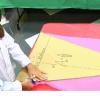
Full of Hot Air: Hot Air Balloon Building
Source Institutions
In this activity, learners create a model of a hot air balloon using tissue paper and a hairdryer. Educators can use this activity to introduce learners to density and its role in why things float.

Swinging Yo-Yo
Source Institutions
Learners build a pendulum from a yo-yo, and then design their own experiment to determine what affects the pendulum's period of swing.

Straws and Airplanes
Source Institutions
Create airplanes from straws and geometric shapes. Test them out to see how far they can fly, or how accurately they can be aimed.
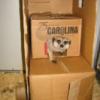
Animal House
Source Institutions
The goal of this activity is to design, build and test a house or toy for an animal.
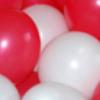
Bouncing Balloons
Source Institutions
In this sports-themed engineering activity, learners create super bouncy balls out of balloons. Learners brainstorm, test their designs, and share results.
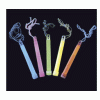
Illuminations on Rates of Reactions
Source Institutions
In this activity, learners investigate the speed of chemical reactions with light sticks. Learners discover that reactions can be sped up or slowed down due to temperature changes.
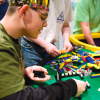
Construction and Destruction
Source Institutions
In this three/four-day lesson, learners calculate perimeters and areas and draw the castle plan to scale.
Ride on a Slide: Toys or Tubes Ride Slopes and Angles
Source Institutions
This activity is a hit for family events and all ages—some will finish in 45 minutes; others can go on for hours.
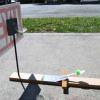
Parabola Basketball
Source Institutions
In this activity, learners build mini-basketball courts and explore the laws of physics. Learners discover that everything you throw or shoot on earth travels in a parabola.
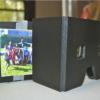
Stereoscope
Source Institutions
In this activity, learners construct a device that allows them to view 2-D images in 3-D.
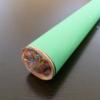
Kaleidoscope
Source Institutions
In this activity, learners build inexpensive kaleidoscopes using transparency paper and foil (instead of mirrors).
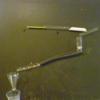
Magnetic Marble Run
Source Institutions
Learners explore magnetism and motion as they build a simple marble run. Learners test different arrangements of plastic and cardboard tubes, bottles, and cups on a magnetic board.
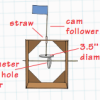
Crank It Up
Source Institutions
In this engineering activity, learners explore simple machines and then build cardboard automata using cams.
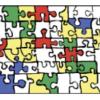
Finding a Gene on the Chromosome Map
Source Institutions
In this activity, learners use pedigree and jigsaw puzzles to explore how scientists use genetic information from a family to identify a gene associated with a genetic disorder.
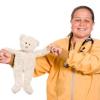
Dr. Vet: Noses, Ears, Legs and Eyes
Source Institutions
In this activity, learners practice counting and multiplication as they figure out how many animal body parts they have to examine as "Dr. Vet."
